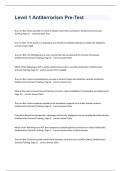Assessment of electric vehicle repurchase intention: A survey-based study on the China EV
market
Name
Institution
Course
Date
, Chapter 1: Introduction
1.0 Introduction
The increased global warming and its effect on the environment, economy, and social
lives of people has raised concern on the use of fossil fuels to power cars and industries. Studies
show that transportation sectors and industries have contributed significantly in the rise of global
warming. Presently, transport sector accounts for more than 20% of carbon emissions in the
world with projected increase of about 1.7% annually as number of vehicles are produced (Lin,
2024). The vehicular traffic has increased tremendous in China as infrastructure have improved
leading to generation of 74% of emissions (Shiau et al., 2020). The development has increased
pollution and deplete energy resources; hence, the increased need for alternative sources of
power. The necessity for developing technology that eliminates the carbon emissions has become
an emerging issue in China. The consumer intention to use electric vehicle has driven
government measures to promote the use of these technology through subsidies and policy. The
Chinese government underscored the need for electrifying transportation sector as the best option
for decarbonising (Yousaf et al., 2021). The adoption of batter electric vehicles has improved the
prospects of decarbonising the environment and enhancing energy efficiency; thus, providing
consumers with alternative to traditional internal combustion engines. Studies show that the
adoption of electric vehicles have a potential for reducing the consumption of petroleum
products in China 50%. China has maintained a global dominance for use of electric vehicles
accounting for more than 35% market (Hu et al., 2024; Hanifati & Salehudin, 2021; El-Gayar &
Elnoshokaty, 2023).. These developments have proven that the country is set to realize carbon
neutrality in the transport sector that fits well within the delineated objectives of Paris Climate
Agreement. The agreement is premised on enhancing the global response to rise in climate
,change through the reduction of temperature (Ashfaq et al., 2020). The international community
underscores the need for countries to mobilize and provide financial resources, improve capacity
building, and develop new technologies. In China, the government has supported the electric
vehicle industry through policy measures that enhance the supply and demand of the vehicles.
For instance, the government of China invested more than 200 billion yuan on tax breaks and
subsidies for electric vehicles for purchase (Saleh et al., 2024). These developments are integral
in propagating the use of electric vehicles in China while reducing the carbon emissions and
addressing environmental concerns.
1.1 Background
The adoption of electric vehicle in China is touted as an effective mechanism for
reducing the carbon emissions and reliance on fossil fuel. Unlike countries such the US and the
EU nations, China began the adoption of electric vehicles later but has continued to improve
policy measures to encourage consumption and use by consumers (El-Gayar & Elnoshokaty,
2023; Alanazi, 2023; Ashfaq et al., 2019). Many manufacturers in Chinese electric vehicle
industry experimented their products quietly resulting to development of high-quality battery
electric vehicles, plug-in hybrid electric vehicles, and hybrid electric vehicles. Studies show that
adoption of electric vehicles in China has enhanced the use of renewable energy, improved
energy reliability, and reducing carbon emissions (Narendiran & Vetrive, 2024; Lin, 2024; Liao
et al., 2017; Lee et al., 2021; Hsu et al., 2006). According to Zhao et al. (2024), the Chinese
electric vehicle industry has emerged as a leader with more than 60% of global sales, which
surpassed its goal of producing and using electric vehicles. The increased adoption of electric
vehicles in China, like the rest of the world, is bolstered by the legislative initiatives and the
market trends. Consumers are embracing the electric vehicles owing to the environmental
, concerns and its efficiencies and advanced technology (Hanifati & Salehudin, 2021). China is
expected to be leading producer and consumer of electric vehicles owing to the adoption of new
technologies, government interventions, and rise in consumer demands for sustainable products.
In essence, efforts of government such as restricting licencing internal combustion engine
vehicles in large cities in China has increased the demand by consumers on use of electric
vehicles (Hu et al., 2024). Also, consumer sentiments about the use of electric vehicles in China
has increased owing to availability of infrastructures such as the charging ports with remarkable
convenience and speed. The concerted efforts by government and industry players have
improved the consumer attitude towards the use of electric vehicles in China.
Conversely, the rise in newer technologies such as the battery has cemented the use of
electric vehicles by consumers in China. The government has subsidised and funded
development of newer electric vehicles batteries, which has helped in reducing the costs and
improving efficiency. A study by Zhao et al. (2024) showed that the electric vehicle batteries in
China are more reliable and cheaper while providing consumers with higher performance and
longer range. Similarly, the strengths in supply chain and manufacture of electric cars and their
batteries have helped in expanding the industry and changing consumer attitude. Cooperation
between the industry players through technology transfer and strategic partnership have driven
the growth of electric vehicle industry in China (Liao et al., 2017; Lee et al., 2021; Hsu et al.,
2006). The growth of the international market has significantly enhanced the positive attitude
and intention to use electric vehicles in China. The increased sale of Chinese electric vehicles has
provided the industry much-needed resources to support development of new technology that
meet consumer needs. According to Zhao et al. (2024), the Chinese electric vehicle brands are
gaining appeal to consumer for their advanced technology such as connected-vehicle features





